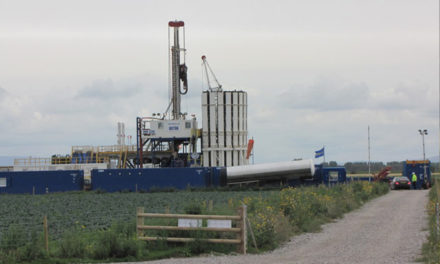A resolution was recently passed in Dresden, a city in the German state of Saxony, declaring a ‘Nazi Emergency’ caused by the growth of far-right extremism and violence. The resolution called for a strengthening of democracy and the protection of minorities.
‘Anti-democratic, anti-pluralist, misanthropic and right-wing extremist attitudes and actions, including violence, are occurring with increasing frequency,’ the resolution said, referring to the bombing of a mosque in 2016 and the recent synagogue attack in the city of Halle.
The resolution was tabled by Max Aschenbach, a local councilor and member of the satirical party Die Partei. Aschenbach told media that there were not enough efforts made by politicians to position themselves as irrevocably opposed to far-right rhetoric. The resolution was put to a vote last Wednesday and passed by 39 votes to 29.
The proposals offered in the resolution call for the development of cultural and political education with increased efforts in protecting victims of far-right extremism.
Dresden: A Hotspot for Far-Right Extremism
Unfortunately, far-right extremism isn’t uncommon in Dresden. The city is the birthplace of anti-Islam and nationalist PEGIDA (Patriotic Europeans Against the Islamisation of the West) and has been the site of many anti-immigrant rallies.
Neo-Nazis have plagued Dresden as far back as the 90s when groups would gather to remember the bombing of the city during World War II. As years went on, the commemoration grew until it soon became known as ‘Europe’s biggest Nazi demonstration’ in post-war Germany. While there have been some attempts to quell the rising threat of Nazism in Dresden, it seems to have proven futile. In 2013, the right-wing to far-right political party Alternative for Germany (AfD) was formed. The party has been described as a German nationalist, right-wing populist and Eurosceptic group with links to neo-Nazism and identitarianism – a far-right post-WWII ideology that asserts the right of peoples of European descent towards culture and territory.
Four years later in 2017, the party entered the federal parliament for the first time, winning 12.6% of the vote. This year the AfD continues to win support, this time receiving 17% of the vote in council elections and coming in second place in September’s state elections.
However, far-right extremism isn’t solely reserved for the city of Dresden. Germany’s Interior Minister has said that in 2018 there was a 20% surge in anti-Semitic incidents, while authorities have warned that the number of extremist and fringe groups has increased by 50% in the last two years.
But the issue goes far beyond Germany, far-right extremism has managed to find its footing across Europe from Spain to Italy, and even further afield in the United States and New Zealand. Social media has quickly become a vital tool for far-right extremists to connect, spread their vitriol and radicalize young people with little interference. Until the threat is afforded the same severity as other extremists, then it seems as though far-right rhetoric will only continue to thrive.
- This Artist is Making the Underwater Arena His Canvas - 28th April 2021
- A Video Game that Promotes Peace and Conflict Resolution - 15th March 2021
- Netflix’s ‘Living Undocumented’ is a Difficult Series to Watch, and Exactly Why We Should - 9th March 2021






